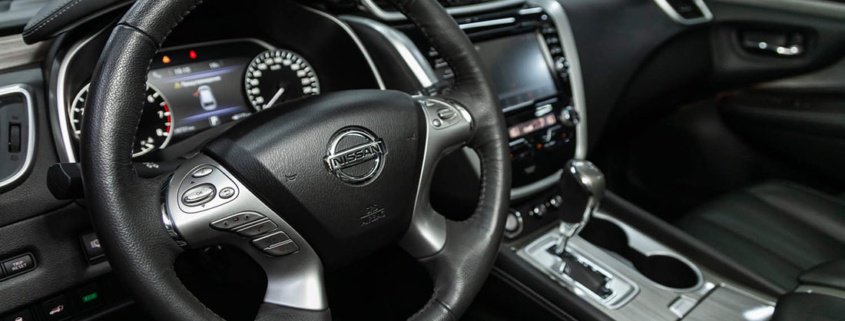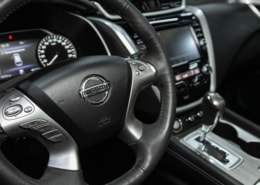Auto Warranty Terms and Definitions
Shopping for an extended warranty can be confusing. Not understanding auto warranty terms used within the retail car industry doesn’t make it any easier. My auto warranty glossary below will help you make sense of this information.
Familiarizing yourself with these terms will help you understand how to research, review and select an extended warranty that fits perfectly with your current driving needs.
On top of being different prices and terms, auto warranties go by other names such as exclusive, inclusive, powertrain, etc.
A
- “A” Rated – Term that describes the highest rating an extended warranty company can receive.
- Administrator – The company that will authorize and pays the repair facility that did the covered repair work on your vehicle. The administrator will work with the repair shop to ensure your vehicle is properly repaired per your policy.
- A.M. Best – A.M. Best is over 100 years old; they provide analysis and ratings for 7,000+ insurance companies. Their rating system has become the standard measurement of an insurance company’s financial standing.
- Authorized or Authorization – The administrator’s approval before repairs can be started on a vehicle.
- Auto Warranty or Automotive Warranty – The actual policy provides coverage against mechanical breakdowns and failures. Also known as extended service agreement, extended service contract, new car warranty, used car warranty, vehicle service agreement, mechanical breakdown agreement, or extended warranty. This type of policy will pay for covered repairs based on the terms and conditions of the auto warranty agreement.
B
- BBB or Better Business Bureau – The Better Business Bureau is an independent company that records a company’s complaint handling history.
- Bumper-to-Bumper – The most comprehensive coverage available to the consumer, also known as an exclusionary plan. These types of extended warranties only list the items NOT covered under the policy in an exclusion section on the contract. If the part or component is not listed, it will be covered under bumper-to-bumper coverage.
C
- Cancel or Cancellation – Most policies have a cancellation clause that will allow the holder to cancel the policy within 30 to 60 days for a full refund as long as there have been no repair claims. If the policyholder goes past the full refund date, cancellation refunds are usually prorated based on mileage and the length of time the warranty has been in place.
- Corrosion Warranty – Corrosion warranties are typically issued by the manufacturer and cover a vehicle for any perforation or rust on the metal body. Coverage of this nature can be purchased as an aftermarket policy, and some corrosion products include a product warranty guarantee.
D
- Deductible – The deductible is the amount you’re responsible for and must pay the repair facility when getting a covered repair completed on your vehicle. Deductibles can be required for each repairable item or each repair visit. Deductibles can also be anywhere from $0 to $250. You can typically pay a small surcharge when purchasing your warranty to take advantage of a lower or no deductible if you have a covered repair.
- Diagnostics – Diagnostics are tests performed on your vehicle by a repair facility to determine the required repairs. Diagnostic charges can range anywhere from $40 or higher and are not typically covered by any extended auto warranty unless purchased as an additional option.
E
- Eligibility – The coverage amount available on a particular vehicle based on usage and characteristics. Each plan has eligibility requirements; some programs offer surcharges or riders for specific components and coverage. Eligibility is typically based on the year, make, and model of a vehicle; it will also include specialty items such as supercharges, four-wheel-drive, or turbo. History will also play a significant factor in eligibility; the quality of the manufacturer, branded titles, or commercial use vehicles may not be eligible for an example.
- Exclusive Warranty or Exclusionary Policy – The most comprehensive extended warranty available to consumers. Also known as a bumper-to-bumper, it only lists items not covered by the policy. If the item or component is not listed on the policy, it will be covered by an exclusionary warranty.
- Extended Auto Warranty – A policy consumers can purchase to cover mechanical breakdowns and failures of their new and used vehicle. Extended auto warranties are also known as extended service contracts, new car warranties, used car warranties, and vehicle service agreements.
I
- In-Service Date – The in-service date is when the original owner purchased the vehicle. The in-service date can also be considered the first date the car is in service for demonstration, commercial use, rental use, business use, or other purposes.
- Inclusionary Warranty or Inclusionary Policy – Also known as a “Stated Component Coverage” policy. This type of warranty or policy will list all of the vehicle’s components and parts covered by the plan. Keep in mind that if the element or component is not listed, it will NOT be covered by the warranty.
- Inspection – An inspection is when you have your vehicle examined by a certified mechanic. Some companies may require an examination of older vehicles or vehicles with higher mileage.
- Insurer or Re-Insurer – The insurance company that issues the policy and guarantees the obligations of the warranty administrator. Another insurer generally backs good extended warranty companies to ensure policy repair claims if the company defaults due to consumers’ high volume of repair claims.
M
- Make – The manufacturer of the vehicle.
- Manufacturer – The company that built the vehicle.
- Manufacturer’s Recommended Maintenance Guidelines – These are the guidelines the manufacturer sets for routine maintenance and upkeep to keep your vehicle in safe and optimal operating condition. Typical manufacturer maintenance guidelines will include changing the engine oil, checking for proper fluid levels, tire rotations, and replacing certain parts. Not following these guidelines may void your extended auto warranty contract.
- Manufacturer’s Warranty or Factory Warranty – The warranty comes with a new vehicle for a certain period or mileage, typically three years – 36,000 miles.
- Model – The specific type of vehicle made by the manufacturer.
N
- New Vehicle – The term is used in the industry to describe a vehicle still covered by the original factory or manufacturer’s bumper-to-bumper warranty.
O
- Odometer – This mechanical or digital device keeps track of the miles driven on a vehicle. If the odometer fails, is disconnected, or is removed, it will void the warranty. If you have the odometer replaced by a certified repair facility and the warranty company documents it, the contract may still be intact.
P
- Plan Expiration – This is the time or date an extended warranty is no longer in effect. The time limitation or mileage limitation may cause it.
- Plan Mileage – This is the total mileage the plan will provide coverage for the vehicle.
- Plan Time Limit or Term – This is the total amount of time the policy will provide coverage for the vehicle.
- Powertrain Policy – This is a limited extended warranty that only covers parts of the power train such as the engine, transmission, and drivetrain.
- Product Warranty – An insurance company does not guarantee product warranties. These warranties may not be sold for a separate price and must be provided for free. A product warranty generally covers fewer parts than a mechanical breakdown warranty, extended warranty, or extended service contract. A product warranty, by law, is not allowed to cover parts that come in direct contact with the product or any parts connected to those parts.
R
- Ratings – Standard benchmarks used to determine companies’ financial security used by companies such as A.M. Best to rate insurance companies.
- Re-Insurer or Re-Insurance Company – The insurance company that guarantees the obligations of the warranty provider in the case of the provider failing due to excessive repair claims.
- Rental or Rental Benefit – Rental reimbursement benefits will only be paid if a covered repair disables the vehicle. Rental benefits are the amount you will be paid to acquire a rental car when your vehicle is being repaired. Most extended warranties have limitations on the amount per day and how many days they will provide a rental car.
- Repair Facility – Where you get authorized covered repairs performed on your vehicle. This can include your dealership, nationally recognized repair center, or local certified mechanic.
- Roadside Assistance – Included with reputable warranty plans. Roadside assistance includes tire repair, fluid and fuel delivery, lockout service, battery service, or towing. This service is included and is available by toll-free number 7 days a week – 365 days a year.
S
- Stated Component Coverage – Also known as “Inclusionary Coverage,” This type of coverage lists all the parts and components covered by the policy. If the part or component is not listed, it will NOT be covered under warranty.
T
- Transfer or Transferable – The extended warranty can be transferred to another person if you decide to sell your vehicle privately. This is an excellent way to add a little value when selling a used car; sometimes, a small fee may be required.
- Trip Interruption Benefit – This is reimbursement for food and lodging expenses if you have a covered breakdown during a trip. Most policies define “travel” as being over 100 miles from your home; also, coverage has daily amount limitations to protect your food and lodging expenses.
U
- Used Vehicle – Term used to describe any vehicle in which the manufacturer’s bumper-to-bumper warranty has expired.
V
- Vehicle Identification Number (VIN) – The unique 17-digit identification number found on every over-the-road vehicle. The VIN can be found in several places on a car.
W
- Wear and Tear – Wear and tear are when a part fails because of “normal operation” or “normal tolerances” instead of failing under mechanical problems. Routine maintenance items usually are not covered, such as clutch plates, brake pads, rotors, drums, wiper blades, fan belts, lenses, light bulbs, glass, etc.
Did you know?
- An exclusionary warranty is the most comprehensive extended warranty available to consumers. Also known as a bumper-to-bumper warranty, it only lists items not covered by the policy. If the item or component is not listed on the exclusion list, it will be covered by the policy.
- You do not have to buy an extended warranty when you buy a car.
- A dealer cannot tell you that the lender requires you to buy a warranty or they will not approve you.
- You do not have to buy a warranty from the same dealer you purchase the car.
- Comparison shop extended warranties to find the best price and right coverage to meet your driving needs.
- Use free quotes to level the playing field in negotiating warranty coverage with a dealership.
When Dealer Scams Occur
Shopping for a New Car?
Before visiting a dealership to buy a new car, it’s essential to know the dealer invoice price and what other people are paying for the vehicle in your local area. Otherwise, you won’t know a reasonable price to pay for any car you’re looking to buy.
Learn how to have dealers compete with each other online before ever stepping foot inside a dealership to guarantee you pay the best new car price and avoid any modern-day car dealer scams.
I highly recommend using an online referral service such as Ryde Shopper or Motor Trend. Their quotes will automatically include any discounts or cash-back incentives currently available in the marketplace.









